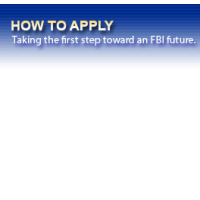FBI and Bureau of Prisons Do Not Do Reference Checks for Law Enforcement Applicants

The Department of Justice, which hires about 10,000 new employees a year, generally does not check the references provided by job applicants, even when they are applying for jobs in law enforcement or corrections, according to a new report from the DOJ Inspector General Office. Perhaps most surprising is the fact that the FBI and the federal Bureau of Prisons (BOP)—the two agencies with the most gun-toting employees—conduct no reference checks for their armed personnel.
Although no government-wide mandate to check references exists, the Office of Personnel Management (OPM) and the Merit Systems Protection Board (MSPB) encourage federal agencies to do so for every applicant as a way to verify the information provided, predict job success, and obtain information about their professional reputation and accomplishments. The Justice Department, however, requires reference checks only for new career attorney applicants, and allows its constituent agencies to set reference checking policies for other occupations.
To determine how the agencies are doing that, the IG reviewed the non-law enforcement hiring policies of 39 DOJ agencies, and found that only 3 provide their hiring officials with clear, written reference check guidance; 9 have general written policies or related guidance that lacked key specifics; 13 provide only a questionnaire or form with no guidance about how or when to use it; and 14 components have no written policies, guidance, or forms.
For law enforcement positions, the agencies are generally consistent in having no policies requiring reference checks, and hiring managers told investigators that they do not conduct reference checks for these new staff. The FBI and the BOP, which make nearly two-thirds DOJ’s hires, also do not conduct reference checks for most new employees. Instead, they use methods like background investigations; performance assessments of applicants during training; polygraphs; psychological testing; panel interviews; medical examinations; drug tests; and fitness tests.
In general, both FBI and BOP officials indicated they relied on the background investigations in lieu of reference checks out of concerns over contacting current supervisors too early in the process and over the large number of references that would need to be checked. The IG report, however, criticized those concerns, emphasizing that neither background investigations nor the other tools can “replace a reference check, which provides information directly from those who have worked with the applicant.”
Change may be coming to the FBI, however, because in September 2012 the FBI reported that its new External Recruitment and Hiring Policy Implementation Guide will require reference checks for all external non-law enforcement hires and that its Human Resources Division has drafted a reference check guide.
-Matt Bewig
To Learn More:
Reference Checking in the Department of Justice (by Department of Justice, Office of the Inspector General) (pdf)
- Top Stories
- Unusual News
- Where is the Money Going?
- Controversies
- U.S. and the World
- Appointments and Resignations
- Latest News
- Trump Renames National Football League National Trump League
- Trump to Stop Deportations If…
- Trump Denounces World Series
- What If China Invaded the United States?
- Donald Trump Has a Mental Health Problem and It Has a Name






Comments